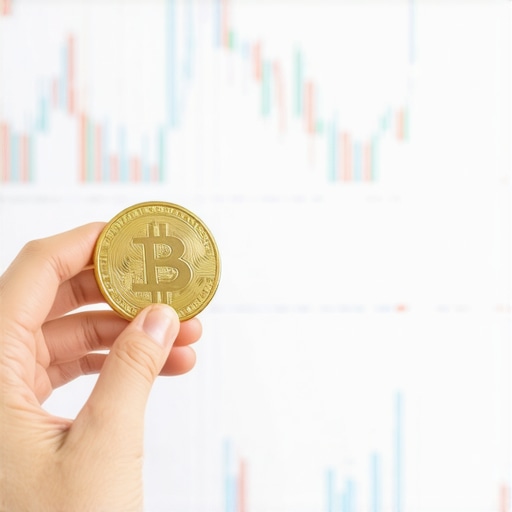Understanding the Value of Gold Coins in Your Investment Portfolio
Buying gold coins can be an exciting yet daunting process for new investors. As a tangible asset, gold coins not only offer a hedge against inflation but can also enhance your overall investment portfolio. Understanding the nuances of purchasing these precious items is crucial to making informed decisions. In this guide, we will explore top tips for buying gold coins effectively, ensuring you maximize your investment.
Research and Educate Yourself on Gold Coin Types
Before diving into the market, it’s essential to familiarize yourself with the various types of gold coins available. From bullion coins to collectible coins, each type serves different investment purposes. Bullion coins, like the American Gold Eagle or the Canadian Gold Maple Leaf, are typically valued based on their gold content, while collectible coins can carry additional premiums due to rarity and historical significance.
Understanding these distinctions will help you make better choices when shopping for gold coins. For instance, if you are a beginner, focusing on more widely recognized bullion coins might simplify your purchase and future resale.
Set a Budget for Your Gold Coin Purchases
Establishing a clear budget is another critical step in the buying process. Gold prices fluctuate based on market demand and geopolitical factors. Therefore, set a budget that reflects your financial situation and investment goals. Consider not only the cost of the coins but also potential premiums charged by dealers, which can vary widely.
Moreover, it’s wise to keep an eye on the current market trends and price forecasts. By doing so, you can strategize your purchase timing to potentially secure a better deal.
Choose Reputable Dealers and Platforms
When buying gold coins, selecting a reputable dealer is paramount. Look for established dealers with positive reviews and transparent pricing. You can verify their credibility through organizations like the Professional Numismatists Guild or the American Numismatic Association. These affiliations can give you peace of mind that you are dealing with trustworthy professionals.
Additionally, consider exploring online platforms that offer gold coins. While online purchases can be convenient, ensure the platform has robust security measures and clear return policies to protect your investment.
Understand the Importance of Documentation and Certification
When purchasing gold coins, always look for proper documentation and certification. Certificates of authenticity ensure that the coins are genuine and accurately graded. This documentation is essential, especially if you plan to resell your coins in the future. Coins with proper certification can fetch higher resale values and attract serious buyers.
In conclusion, buying gold coins effectively requires thorough research, budgeting, and selecting reputable dealers. By following these tips, you can make informed decisions that enhance your investment portfolio and help safeguard your wealth against economic uncertainties. For more insights on gold investments, check out our guide on investing in gold for beginners to further solidify your knowledge and confidence in this market.
Evaluating the Market Trends for Gold Coins
Staying updated with the market trends is essential for making informed decisions when buying gold coins. The dynamics of gold prices are influenced by various factors including economic indicators, geopolitical events, and consumer demand. By analyzing these trends, you can better anticipate price fluctuations and determine the optimal time to invest. For example, during periods of economic uncertainty, gold often sees increased demand, which can drive prices up.
Understanding the Benefits of Gold as an Investment
Gold has long been recognized as a safe-haven asset. As a hedge against inflation and currency fluctuations, investing in gold coins can provide a buffer during economic downturns. The stability of gold makes it a reliable choice for preserving wealth. If you want to learn more about how gold can protect your investments during uncertainty, consider reading our article on How Gold Can Protect Your Investments During Uncertainty.
Assessing Your Investment Goals
Before making a purchase, it’s crucial to assess your investment goals. Are you looking for short-term gains or long-term wealth preservation? Understanding your objectives will help you choose the right type of gold coins. For instance, if you’re focused on long-term investment, consider adding a mix of both bullion and collectible coins to your portfolio. This diversification can enhance your overall returns.
Finding the Best Gold Coins for Your Portfolio
When selecting gold coins, consider factors such as purity, weight, and the associated premiums. Coins with higher purity, such as the 24K gold coins, typically carry a higher value. Additionally, understanding the weight of the coins can help you assess their market value. For new investors, starting with popular coins like the American Gold Eagle or the Canadian Gold Maple Leaf can provide a solid foundation. These coins are widely recognized and can be easily sold in the market.
Storing Your Gold Coins Safely
Once you have acquired gold coins, ensuring their safety is paramount. Consider utilizing a safe deposit box at a bank or a secure home safe. Proper storage not only protects your investment from theft but also helps maintain the coins’ condition. For tips on securing your investments, check out our guide on Best Practices for Protecting Your Gold Investments.
Tax Implications of Gold Coin Investments
Understanding the tax implications of gold coin purchases is critical for investors. In many jurisdictions, gold coins are considered collectibles, which can affect the tax treatment of any gains made upon selling. It’s wise to consult with a tax professional to ensure compliance and optimize your tax strategy when investing in gold. For a deeper understanding of how gold investments are taxed, consider exploring our article on Gold Investment: A Comprehensive Guide to Buying Gold.
Navigating Online Gold Coin Purchases
In today’s digital age, purchasing gold coins online can be convenient but requires caution. Always research the seller thoroughly, checking reviews and verifying their credentials. Look for platforms that offer secure payment methods and transparent return policies. By conducting due diligence, you can minimize risks associated with online transactions.
Conclusion
Buying gold coins is not just a transaction; it’s a significant investment decision that requires careful consideration. By understanding the market, setting clear goals, and staying informed about trends, you can navigate the gold coin market effectively. Remember to explore further resources, such as our detailed guide on investing in gold for beginners, to enhance your knowledge and confidence in this precious metal investment.
Exploring Gold Futures: What Investors Need to Know
Gold futures are a popular investment vehicle for those looking to capitalize on the fluctuating prices of gold. These contracts allow investors to agree to buy or sell a specific amount of gold at a predetermined price on a future date. Understanding how gold futures work is essential for investors looking to diversify their portfolios. For a foundational understanding, check out our comprehensive guide on Gold Futures Explained: Key Insights for Investors.
Benefits of Trading Gold Futures
Trading gold futures offers several advantages, including leverage, which allows investors to control a larger position with a smaller amount of capital. This can amplify potential gains; however, it also increases the risk of losses. Moreover, gold futures provide a hedge against inflation and currency fluctuations, similar to physical gold investments. For insights on how gold can serve as a hedge during economic uncertainty, read about Understanding the Benefits of Gold as a Hedge.
Key Considerations for Gold Futures Trading
Before diving into gold futures trading, it’s crucial to consider the associated risks and market volatility. Prices can be significantly influenced by global economic events, geopolitical tensions, and changes in monetary policy. Therefore, maintaining a well-researched approach is vital. For more on how economic events impact gold prices, refer to our article on The Impact of Economic Events on Gold Prices.
Gold Futures vs. Physical Gold Investment
When comparing gold futures to physical gold investments, each has its own set of pros and cons. Physical gold, such as coins and bullion, offers tangible security and is often seen as a safer investment during economic downturns. Conversely, gold futures can provide greater liquidity and lower storage costs. Understanding these differences is essential for developing a balanced investment strategy.
Strategies for Successful Gold Futures Trading
Successful trading in gold futures requires a well-defined strategy. One common approach is to use technical analysis to identify price trends and potential entry and exit points. Additionally, employing stop-loss orders can help mitigate risks associated with sudden market changes. For a deeper dive into effective trading techniques, explore our guide on Gold Trading Techniques: 5 Strategies to Master.
Keeping Up with Gold Market Analysis
Staying informed about the latest trends and forecasts in the gold market is crucial for making informed trading decisions. Regularly reviewing expert analyses and reports can provide valuable insights into price movements and market sentiment. For ongoing updates, check out our Gold Market Analysis: Current Trends and Future Predictions.
Conclusion: The Role of Gold Futures in Your Investment Portfolio
Incorporating gold futures into your investment portfolio can enhance diversification and provide opportunities for profit in fluctuating markets. However, understanding the mechanics, benefits, and risks associated with these contracts is crucial for success. As you navigate the gold investment landscape, consider leveraging resources like our detailed guide on Investing in Gold ETFs: A Smart Choice for Investors to expand your knowledge and refine your investment strategy.
Understanding Gold ETFs: A Smart Investment Choice
Gold Exchange-Traded Funds (ETFs) have gained popularity among investors seeking exposure to gold without the need to physically hold the asset. These funds trade on stock exchanges and aim to track the price of gold, making them an accessible option for those looking to diversify their portfolios. For further insights into gold investments, you may want to explore our page on Gold Investment: A Comprehensive Guide to Buying Gold.
Benefits of Investing in Gold ETFs
Investing in gold ETFs presents numerous advantages. They offer liquidity, allowing investors to buy and sell shares easily throughout the trading day. Additionally, gold ETFs typically have lower management fees compared to mutual funds, making them a cost-effective choice for investors. To learn more about diversifying your portfolio with gold, check out our post on Gold Stocks and Mutual Funds: Diversifying Your Portfolio.
How Gold ETFs Work
Gold ETFs operate by holding physical gold bullion or gold-related assets. Each share of the ETF represents a specific amount of gold, allowing investors to gain exposure to gold prices without the hassles of storage and security. This structure is particularly appealing for those looking to invest in gold without the complexities of managing physical assets. For a comprehensive look at gold trading, refer to our guide on Understanding the Basics of Gold Trading for Newbies.
Evaluating the Best Gold ETFs
When choosing a gold ETF, several factors should be considered, including the fund’s expense ratio, tracking error, and the amount of gold held by the fund. Funds with lower fees and a strong track record of accurately tracking gold prices are generally more favorable. For a detailed analysis of gold trading techniques, you can explore our post on Evaluating Gold Trading Techniques: Expert Tips for 2025.
Risks Associated with Gold ETFs
While gold ETFs offer numerous benefits, investors should also be aware of the risks involved. Market volatility can affect the value of gold ETFs, and changes in gold prices can lead to significant fluctuations in returns. Additionally, some ETFs may include management fees that can impact overall performance. For insights on how to protect your investments during uncertainty, read our article on How Gold Can Protect Your Investments During Uncertainty.
Conclusion: Maximizing Gains with Gold ETFs
In conclusion, gold ETFs provide a convenient and efficient way to invest in gold and can be an integral part of a well-rounded investment strategy. By understanding their structure, benefits, and risks, investors can make informed decisions that align with their financial goals. To further enhance your knowledge, consider visiting our resource on Gold Price Forecast 2025: What Investors Should Expect for insights into future trends. As the landscape of gold investment continues to evolve, staying informed will be key to maximizing your gains in this lucrative asset class.
Frequently Asked Questions About Gold ETFs
What are Gold ETFs?
Gold ETFs are investment funds that trade on stock exchanges, aiming to track the price of gold. They allow investors to gain exposure to gold without the need to own physical gold, making them a convenient option for many.
How do Gold ETFs work?
Gold ETFs operate by holding physical gold bullion or gold-related assets. Each share of the ETF represents a specific quantity of gold, providing investors with an efficient way to invest in gold prices without managing physical assets.
What are the benefits of investing in Gold ETFs?
Gold ETFs provide several benefits, including high liquidity, lower management fees compared to traditional mutual funds, and ease of trading. They also allow for diversification in investment portfolios, helping to mitigate risks.
What risks are associated with Gold ETFs?
Investors should be aware of risks such as market volatility, changes in gold prices, and potential management fees. Understanding these risks can help investors make informed decisions and protect their investments.
How to choose the best Gold ETF?
When selecting a gold ETF, consider factors like the expense ratio, tracking error, and the amount of gold held by the fund. Funds that consistently track gold prices accurately while maintaining lower fees are generally better options.
Can Gold ETFs be used for long-term investment?
Yes, Gold ETFs can be suitable for long-term investments. They provide an efficient way to gain exposure to gold over time, helping investors hedge against inflation and economic uncertainties.
How do Gold ETFs compare to physical gold investments?
Gold ETFs offer advantages over physical gold, such as ease of trading, no storage costs, and lower transaction fees. However, some investors prefer physical gold for its tangible value and emotional significance.
What are the tax implications of investing in Gold ETFs?
Investing in Gold ETFs may have different tax implications compared to other investments. In many jurisdictions, profits from gold investments may be subject to capital gains tax, so it is essential to consult a tax professional for personalized advice.
How do economic conditions affect Gold ETF prices?
Economic conditions, such as inflation rates, currency fluctuations, and geopolitical events, can significantly influence gold prices and, consequently, Gold ETF prices. Investors should stay informed about market trends to make educated investment choices.
Where can I find reliable information about Gold ETFs?
Reliable information about Gold ETFs can be found through reputable financial news websites, investment platforms, and financial advisors. Additionally, resources like the Investopedia and Morningstar provide valuable insights and analysis on Gold ETFs.
Summary: The Value of Gold ETFs in Your Investment Strategy
Gold ETFs represent a powerful tool for investors looking to diversify their portfolios and gain exposure to gold without the complications of physical ownership. By understanding their structure, benefits, and risks, investors can make informed decisions tailored to their financial goals. The insights provided throughout this article, including essential FAQs, highlight the importance of thorough research and strategic planning when investing in Gold ETFs. As the investment landscape continues to evolve, staying educated on gold market trends will be crucial for maximizing your investment returns.










